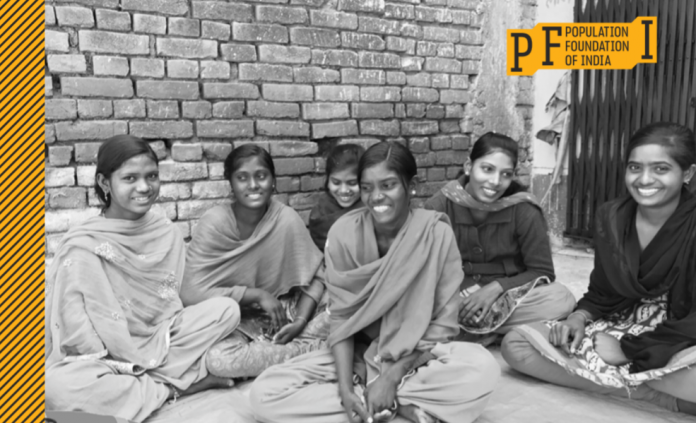Lockdown forces Bihar’s adolescents to turn to TV, social media for help on mental health according to study by Population Foundation of India
Findings are part of a 3-state study conducted by the national NGO to ascertain the effects of COVID-19 on adolescents
Nearly five out of every 10 adolescents in Bihar (48%) chose television to address issues of mental and emotional wellbeing during the ongoing lockdown. And 3 out of every 10 young people (36%) sought help via social media platforms to tackle mental health issues. The worrying statistic is that only one respondent reported using school as a source of information on such issues. This clearly indicates the inability of educational institutions to transcend the boundaries of school premises and the academic session to stay connected with students
These findings were revealed in a three-state (Bihar, Rajasthan, Uttar Pradesh) study conducted by the national NGO Population Foundation of India (PFI) in the month of May to assess the impact of COVID-19 on adolescents.
According the study, more than half the adolescents, the study spoke to confirmed that they had access to information on mental health, and nearly half among them said that they had used some form of mental health service or resource. Among the different resources that were used, most common were face to face interaction with healthcare providers, interactions with friends, and TV.
Poonam Muttreja, Executive Director, PFI says that the implications of interrupted healthcare must be critically explored among adolescents in India. “_Constituting nearly one-fifth of the country’s population, adolescents face educational uncertainties (with the closure of schools and colleges, and patchy access to digital learning), restrictions on their mobility, freedom and socialisation, an increase in domestic chores and household conflict (disproportionately borne by women), and anxieties around their employment prospects, among others. However, high prevalence of informal channels of information on healthcare, such as friends or TV shows, is not ideal as the care provided is not vetted for accuracy and those delivering it are not trained to do so._”
Dr. Manohar Agnani, Joint Secretary, Reproductive and Child Health, Ministry of Health and Family Welfare. Government of India, elaborates on the steps being taken to address these worrying figures. “_When it comes to mental health, webinars have been conducted to orient our state program officers who are dealing with the impact of COVID-19 adolescent and mental health issues. The ministry has also collaborated with relevant organisations for skill building of adolescent health counsellors on providing psychological support to adolescents and young people. We are also engaging with youth networks to connect with community-based youth champions and networks for creating positive environment around mental health issues._”
These critical findings are part of the Population Foundation of India’s ‘Rapid Assessment study’ conducted across Rajasthan, Uttar Pradesh, and Bihar in May 2020 to understand “how adolescents were coping with COVID-19 challenges.” The idea was to understand the level of knowledge of the young population (15-24 years) regarding COVID-19; how it has impacted their lives and mental health, and their needs and priorities. The main areas of impact studied were a) the effect on mental health; b) sources to obtain information on COVID-19; c) increase in workload at home and d) unmet need for sanitary napkins since schools were shut.
Other Key Findings From Bihar
Shortage of Sanitary Napkins
More than half the respondents (55%) in Bihar felt an unmet need for sanitary napkins. Lockdown had forced schools to close and that meant no sanitary napkins and girls were forced to use unhygienic options.
Usage of Television and Social Media
About 64% respondents said they watched more television during the lockdown. Another 36% said they found themselves on some social media platform or the other, given the restrictions to their movement.
Increase in Workload
26% of respondents (all females) said that they have witnessed an increase in workload and household chores.
Mental Stress
In Bihar, 28% of female adolescents surveyed said they felt depressed during the lockdown compared to 17% of male respondents.
COVID-19 awareness
Some 92% of Bihar’s respondents said that they were aware of at least two symptoms associated with COVID-19
About 100% admitted to frequent washing of hands as a precautionary measure.
About 84% said they would self-isolate if the need arises.
About 91% said they would help in contact tracing if need be.
The factsheet with details of the surveys can be downloaded from the link mentioned below :
Overall notes on the studies, methodology, findings, and recommendations can be downloaded from the link mentioned below :
Rapid Assessment_ExecutiveSummary










































